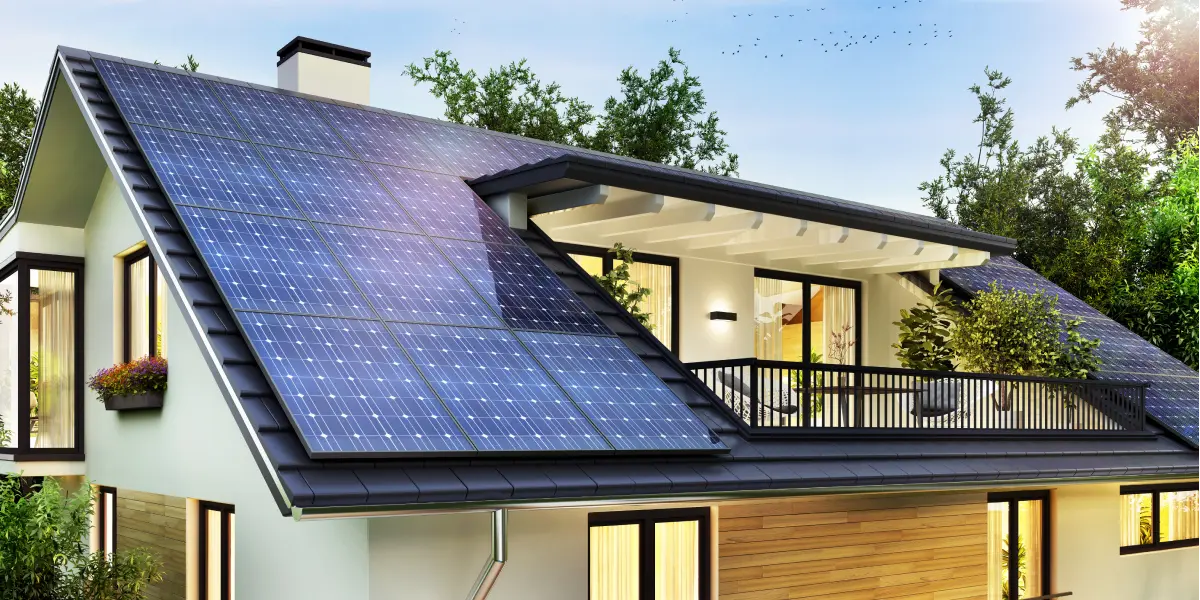What is a Residential Solar Panel System?
Residential solar panel systems are environmentally friendly and economical energy solutions that generate electricity from sunlight by being installed on your roof or suitable areas. With modern solar panel technologies, you can reduce your electricity bill by 70-100%, and even earn income by selling excess electricity to the grid.
Solar Panel Types and Features
1. Monocrystalline Solar Panels
Monocrystalline solar panels are the most efficient type of solar panels:
- 20-22% efficiency rate
- Long lifespan (25+ year warranty)
- Good performance even in low light conditions
- Aesthetic black appearance
- High power generation in small areas
2. Polycrystalline Solar Panels
Optimal solution in cost-performance balance:
- 17-19% efficiency rate
- More economical price
- Suitable for large roof areas
- Blue color tones
3. Bifacial Solar Panels
Next-generation high-efficiency technology:
- Energy generation from both front and back surfaces
- 25-30% extra efficiency
- Utilizing ground reflections
- Technology of the future
Residential Solar Panel System Components
Basic Components:
- Solar Panels: Main component that converts sunlight to DC electricity
- Inverter: Critical device that converts DC electricity to AC electricity
- Mounting System: Structure that securely fixes panels to the roof
- Cabling and Protection: Materials required for safe electrical transmission
- Monitoring System: Software for tracking system performance
Solar Panel System Capacity Calculation
Step 1: Calculate Your Electricity Consumption
Review your last 12 months of electricity bills and determine your monthly average kWh consumption.
Step 2: Measure Your Roof Area
Calculate your south-facing, shadow-free roof area in m². Approximately 6-8 m² is required for 1 kW system.
Step 3: Evaluate Sunshine Duration
Average daily sunshine duration in Turkey is between 3.5-4.5 hours. This value may vary according to your region.
Example Calculation:
- Monthly consumption: 400 kWh
- Daily average: 13.3 kWh
- Sunshine duration: 4 hours
- Required system capacity: 13.3 ÷ 4 = 3.3 kW
Solar Panel System Cost and Payback
2025 Cost Analysis (per kW):
- Monocrystalline system: $3,000-4,500/kW
- Polycrystalline system: $2,500-3,500/kW
- Bifacial system: $3,500-5,000/kW
Payback Period:
With electricity prices in Turkey, solar panel system costs are amortized in 6-8 years. You can use free electricity for 15-20 years during the 25-year warranty period.
Solar Panel Installation and Permits
Legal Process:
- EPDK (Energy Market Regulatory Authority) application
- Approval from electricity distribution company
- Municipality building permit (if required)
- System installation and commissioning
- Meter change and net-metering system
Installation Process:
- Technical survey and project preparation: 1-2 days
- Permit procedures: 2-4 weeks
- Physical installation: 1-2 days
- Testing and commissioning: 1 day
Solar Panel Maintenance and Performance
Regular Maintenance:
- Panel cleaning 2-3 times a year
- Monthly performance check
- Cable and connection inspections
- Inverter status monitoring
Factors Affecting Performance:
- Panel angle and orientation
- Shading conditions
- Weather conditions
- Panel cleanliness
- Inverter quality
Melita Energy Solar Panel Solutions
Meet your home's energy needs with Melita Energy solar panel systems. Our solutions include:
- Tier-1 panel brands (Jinko, Trina, Canadian Solar)
- 25-year panel warranty
- 10-year system warranty
- Free survey and project service
- Turnkey installation
- Permit procedure support
- 24/7 technical support
Calculate your solar panel system's payback period with our ROI calculation tool. For detailed information and quotes, contact our expert team.
